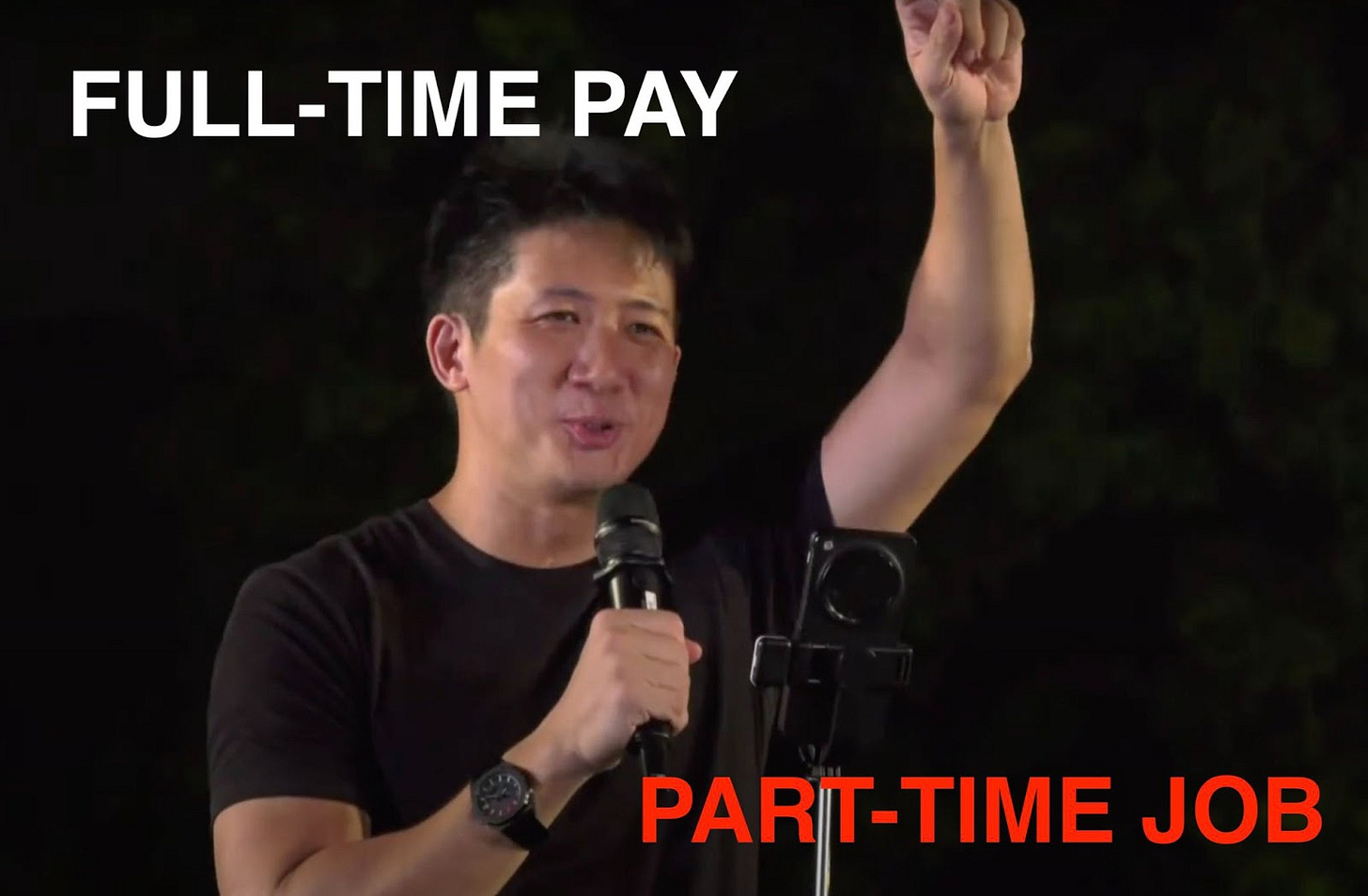Maybe there’s a lot to like about your job—great colleagues, opportunities for professional growth, work that gives you a sense of meaning—but it could still be better. Perhaps you’d like health insurance (inclusive of dental care), a shorter commute, or the assurance that you’re not expected to answer emails after the work day ends.
You could be a freelancer, stressed out about late invoices or not getting enough work in the first place. You could work a service job and be forced to smile at rude customers after being on your feet for six straight hours. You might even be unemployed, on your nth month of not hearing back about your many, many job applications.
Do you make enough money to afford housing? Or to support a family? Has your salary kept pace with inflation? Do you have the time to work, see your friends, stay on top of your chores, exercise, and get eight hours of sleep every night?
In Singapore, we’ve largely accepted that there can be no perfect job. Every job comes with tradeoffs. A well-paying job won’t leave you any time for a personal life; a job that feels fulfilling won’t pay. We’ve also accepted that some jobs will always be bad. Fast food, cleaning, and manual labour jobs are always going to be exhausting for very little pay … but somebody has to do them.
I recently read Eve Livingston’s book about young people in the UK labour movement, hoping to learn more about what unions do (as they are a foreign country to me).
The interests of bosses and workers are not just different but opposed, and in a constant tug of war: we need to sell our labour at a rate that allows us to live a decent life, while they want to extract it at as low a price as possible, for as big a gain as possible. We rely on them for survival but we’re just one of many interchangeable and disposable workers they can pick up and drop as it suits them. Workers are the largest group in society, but power is concentrated with bosses; they choose how much to cede to you. … Put simply, this is why we unionise. As individuals against capital, we’re largely disposable, replaceable and, ultimately, powerless. But the reverse is true of a collective working class; the bosses rely on us to make their profits. Collectivism shifts this power dynamic, clawing back some control from capitalism’s gatekeepers to those of us at its mercy.
Hmmm, this doesn’t feel very tripartite-y. Our “tripartite system” asks the labour movement to stand “shoulder to shoulder” with the government and employers when representing workers’ interests. It assumes that there are win-win outcomes for everybody and that they can be achieved without confrontation. Livingston, and anybody who’s ever had a shit boss or shit job, would disagree.
I’m not saying we should adopt the British system. (We did that before and it got us S377a.) But we also don’t know that Singapore’s current system is the best one for us, a country where surveys consistently find over 60% of workers reporting burnout. Operating within the system that we have, what can us regular folk do to ensure that our work is fair and decent?
I’m actually not sure but I’ll be at this Sunday’s Labour Day Rally to learn more.
It’s organised by Workers Make Possible, a civil society group for workers’ empowerment. This year’s rally will be about the rising cost of living and what ordinary people can do to fight back. According to the organisers, “this isn't a rally to please or even demand things from the people in power, it's for us. It's for us to rally ourselves to get stronger”.
Post-election, there have been murmurs about how we now have to wait another five years for a shot at a fairer and better Singapore. In our GE2025 podcast episode, we talked about how the work was “never going to be done with an election”. One of our guests, political scientist Chong Ja Ian pointed out that being a citizen entails responsibilities and duties.
It's not that someone else will do it for you. I mean, the pledge is “we the citizens”, not “they the citizens.”
Coming to the Labour Day Rally is a great way to find out what you can do. There is an independent labour movement in Singapore outside of the NTUC and some of those groups will have booths at the rally: Sick & Tired (a network of healthcare workers), Makan Minum Workers (F&B workers), and SG Riders (delivery riders) to name a few.
Only Singapore citizens and Permanent Residents can attend the rally but the country’s migrant workers, over a million of them, will still be represented by Migrant Workers Singapore and the groups Migrant Mutual Aid, and HOME.
Many of you who attend Workers’ Party rallies this year know how energising hope feels. We can create that feeling by ourselves! We don’t need Pritam Singh saying “Labubu” on stage (as satisfying as it is) to have a good time.
The Mynah team will be there as private citizens and as newly hatched members of NIMBUS, the Network of Independent Media for Better Understanding and Support. We’ve been committed to paying all our contributors since our first issue in 2016. (Since then, we've quadrupled our rates!!!) We’re excited about working with other media outlets to figure out how pay and job conditions can be better for all of us. We hope to see you at Hong Lim Park this Sunday, from 4 to 7 pm. Come say hello if you make it. :)
(It’s a good opportunity to pick up a sick Good Morning towel too.)







Had it on my calendar to attend until I read here that only Singapore citizens and PRs can join. Will need to find other ways to stay informed!